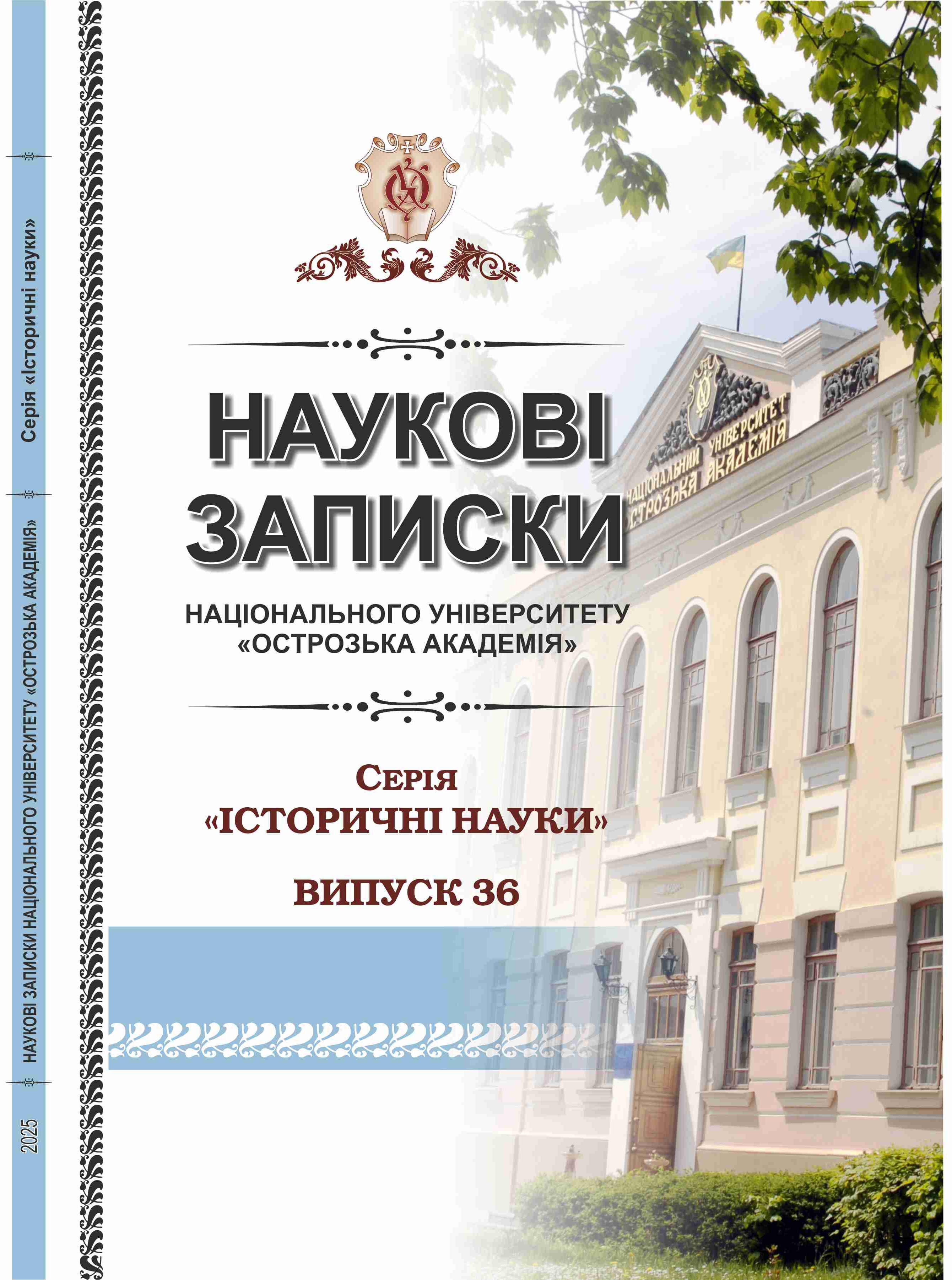THE COMMUNITY OF POLITICAL EMIGRANTS FROM THE UPR IN THE INTERWAR OSTROH
Keywords:
Ukrainian Revolution, The Second Polish Republic, Ostroh, political emigrants, UPR intelligence, education, cooperation, church and religious lifeAbstract
The article examines the circumstances of the appearance in interwar Ostroh of political emigrants, former military and public figures from the Ukrainian People's Republic (UPR), who emigrated to the territory of the Second Polish Republic. Among them were people of different professions, education, and political views, which fully reflected the situation during the Ukrainian Revolution.
The scientific novelty of the article lies in the introduction of archival documents and interwar periodicals into scientific circulation, which allowed to identify military and civilian emigrants from the Ukrainian People's Republic who settled in Ostroh, to highlight the directions, forms and methods of their work. It is proved that the life and activities of Ukrainian political emigrants were conditioned by internal circumstances, the border status of the town and the peculiarities of Polish national policy. It is established that the first branch of the Ukrainian Central Committee (UCC) in the Volyn Voivodeship, headquartered in Warsaw, was established in Ostroh, with the task of providing moral and material support to political emigrants. The author examines the contribution of emigrants to the educational and religious life of the town, their participation in cooperative and public organisations (Ostroh Cooperative Union; Ukrainian Cooperative Bank; «Prosvita»; «Prosvityanska Hata», etc.) In addition, emigrants popularised the name of Simon Petliura, supported their lonely and sick comrades, and perpetuated the memory of the participants of the Ukrainian Revolution. Attention is drawn to the self-organisation of former UPR activists through the development of their own households. The author substantiates the circumstances of the formation of the UPR control and intelligence base in Ostroh, headed by Yakiv Halyuk (Malynivskyi). Using the biographical method, the place and role of particular emigrants in the development of interwar Ostroh is determined. It is proved that the community of political emigrants from the UPR in Ostroh was heterogeneous, and its life depended on the circumstances of the interwar period, determined by various factors. The reasons for the collapse of the UPR community in the town in the late 1930s due to the departure of emigrants to other places, high mortality, and dissolution in pro-government structures are substantiated.

